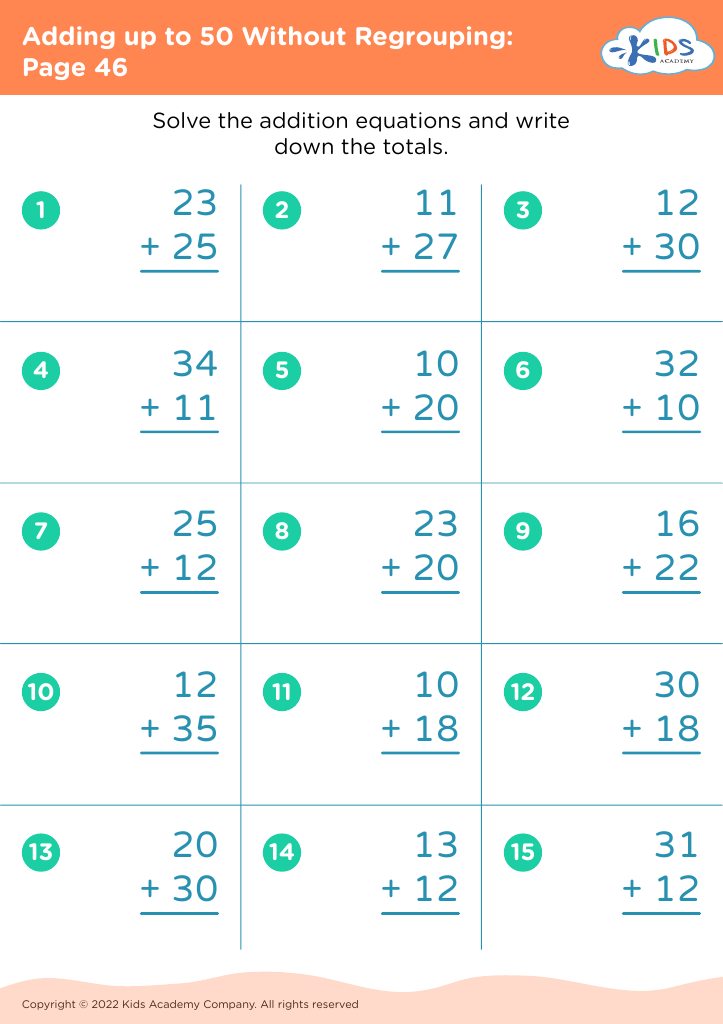Shape identification Adding up to 50 Worksheets
3 filtered results
-
From - To
Enhance your child's learning experience with our "Shape Identification Adding Up to 50 Worksheets!" Perfect for early grade students, these engaging worksheets combine shape recognition with basic addition skills, up to the number 50. Each worksheet is designed to make math fun and interactive, helping young learners develop critical thinking through colorful visuals and hands-on activities. With a variety of exercises to choose from, children will enjoy honing their abilities while building a solid foundation in both geometry and arithmetic. Prepare your little learners for success in math with these thoughtfully crafted resources that encourage creativity, independence, and problem-solving skills.
Shape identification and the ability to add up to 50 are fundamental skills that significantly contribute to a child's cognitive development. Understanding shapes helps children recognize patterns and spatial relationships, essential for problem-solving in math and everyday life. By familiarizing themselves with different shapes, children enhance their creativity and critical thinking abilities, enabling them to view the world in diverse ways.
On the other hand, mastering addition up to 50 builds a solid foundation for arithmetic, which is essential for all future math concepts. As children learn to add larger numbers, they develop number sense, an essential skill for real-life applications like budgeting and cooking. These skills promote logical reasoning and analytical thinking.
Parents and teachers should prioritize these skills because they foster self-confidence in children, which is vital for academic success. Engaging in playful activities that involve shape identification, like shape scavenger hunts or building with geometric toys, makes learning enjoyable. Similarly, using games to practice addition can motivate children and keep them engaged.
Ultimately, shape identification and addition skills are not just academic sets; they are crucial for daily interactions, problem-solving, and building a well-rounded, capable learners. Encouraging these abilities will set the stage for successful future learning.















